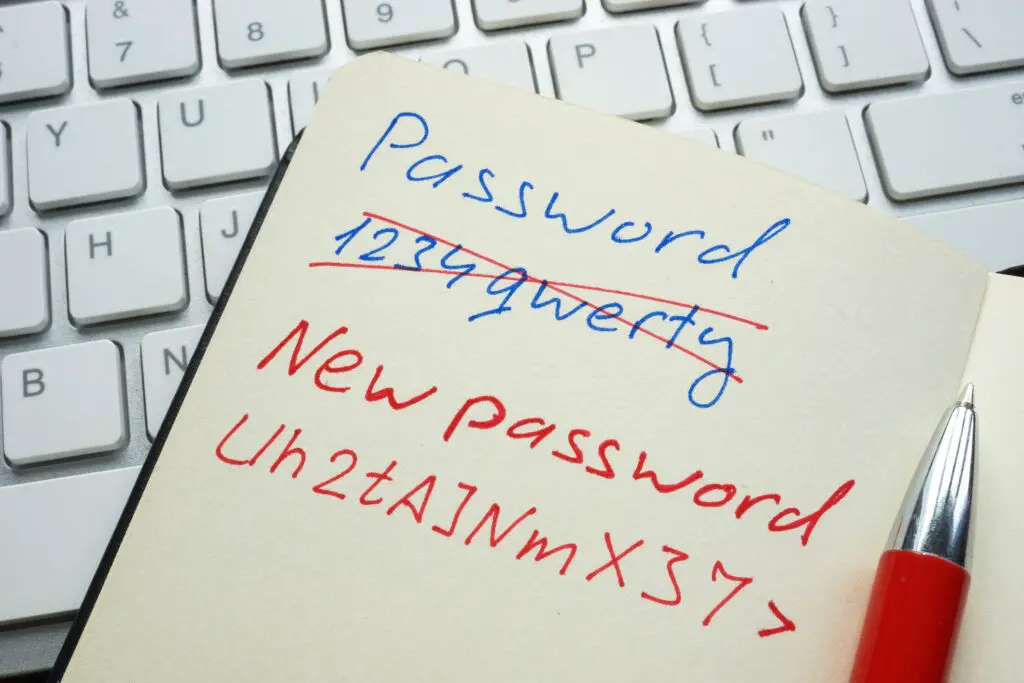Are you often worried about the safety of your online accounts? With data breaches becoming more common, this concern is valid. Fear not, understanding and applying password entropy can significantly increase the security of your passwords, making them a tougher to crack. What exactly is password entropy?
Password entropy is generally a measure of the unpredictability or complexity of a password. It is typically calculated based on the number of possible symbols and the length of the password, indicating how difficult the password is to guess or crack.
Entropy is a fascinating concept that forms the foundation of password and passphrase strength.

Understanding the Concept of Password Entropy
Imagine you have a bicycle lock with 4 wheels, each containing numbers from 0-9. The total combinations are 10x10x10x10 = 10,000. Now, consider a more complex lock with 12 wheels, each with 100 characters to choose from. The combinations would be 100x100x100...12 times, making it much stronger.
In simple terms, password entropy is like the complexity of these locks. It's a measure of how unpredictable a password is, based on the number of possible combinations. A password with higher entropy is like a more complex lock; it's harder to crack.
To illustrate the difference between low and high entropy, let's consider two password examples.
For a low entropy password, consider something like
password123. It's only alphanumeric and follows a very common pattern – a dictionary word followed by a number sequence. There's not much randomness or unpredictability, so it's low entropy.On the other hand, a password like
J4z!2&9Qhas higher entropy. It mixes uppercase and lowercase letters, includes numbers, and also special characters. The pattern isn't easily guessable and there's a higher degree of randomness.
So, even though both passwords have the same length, J4z!2&9Q is considerably stronger due to its higher entropy.
Always remember, when creating a password, aim for high entropy – mix characters, include numbers, and some special characters.
With concepts in hand, how does entropy affect the security of your passwords?
How Password Entropy Affects Security
Okay, so higher entropy means more unpredictability and thus a stronger password. A stronger password translates into more attempts for a hacker to guess or 'brute force' your password.
Brute force is a hacking method where an attacker tries every possible combination to crack your password.
Think of it as someone trying every single key on a massively large keychain to unlock a door. Password entropy is your first line of defense against this.
Every added character or symbol to your password increases its entropy, thereby making it more complex and difficult for an attacker to crack.
Password cracking tools are widely available and are often used in attacks. These tools systematically check all possible passwords until the correct one is found.
These tools are widely available and while this sounds scary, don't worry—by understanding and applying password entropy, you can significantly bolster your security.
High entropy passwords are crucial to your online safety, but managing unique ones for every account becomes unmanageable. This is where password managers come into play.
Password managers can generate and store high entropy passwords for each of your online accounts, so you don't have to remember them all. All you need to remember is one strong master password to unlock your password manager.
So, how can we measure entropy to estimate brute force cracking time?

Practical Guide on How to Calculate Password Entropy
Calculating password entropy may sound like a daunting task, but let's break it down into simple, manageable steps.
The first thing you need to know is that password entropy is based on two key elements: the length of your password and the number of possible symbols.
As an example, in a simple password that only uses lowercase letters, you have 26 possible symbols (a-z).
So, if your password is 5 letters long, the number of possible combinations becomes 26 to the power of 5 (approximately 11.8 million).
But remember, this is still considered low entropy because we're only using lowercase letters.
To increase the entropy, we can increase the number of possible symbols.
So, let's say you now use uppercase letters, lowercase letters, numbers (0-9), and special characters like punctuation marks.
Now you have 26 (lowercase) + 26 (uppercase) + 10 (digits) + 33 (commonly used special characters) = 95 possible symbols.
If your password is still 5 characters long, the number of possible combinations becomes 95 to the power of 5 (approximately 7.7 billion).
See how much it jumped?
That’s what makes a password more secure. It’s the sheer number of possible combinations a potential attacker would have to try to crack your password.
For you mathematically inclined, the formula is
Entropy = log2(N^L)
Where N is the number of possible symbols/characters and L is the length of the password.
Another helpful tool for understanding password entropy and its implications is GRC's Password Haystacks tool. This tool is designed to help you comprehend how adding more characters or including different types of symbols can drastically improve your password's strength. It's a practical, hands-on way to really grasp how the length and complexity of your password improves its security.
Remember, the key to a high entropy password is a balance between length and complexity. In practice, how can we apply entropy in the real world?
Applying Password Entropy to Personal & Professional Security
Creating high entropy passwords doesn't need to be a challenge, and it's one of the most effective strategies you can employ to ensure the security of your accounts.
Here are some tips to help you achieve this:
Start with length. The longer your password, the greater the entropy. This means that a 12-character password will be significantly stronger than a 6-character one.
Use a mix of upper-case letters, lower-case letters, numbers, and special characters. This broadens the pool of potential characters that could be in your password, which increases entropy.
As I mentioned, using a password manager or vault is a must, but for passwords you have to remember, consider using a passphrase instead of a password. A passphrase is a sentence or a set of words which is easy for you to remember, but hard for others to guess.
For instance, you might create a personal goal and write a simple sentence expressing it. Modify the sentence to include uppercase, lowercase, symbols (including spaces) and some numbers. This provides a good balance of entropy and memorability.
Pro Tip: Use a double-blind password manager strategy, using a password manager, but also keeping part of each password only in your head. Watch this video to understand more.
Other Questions You Might Have
Can a long password with only lowercase letters be considered secure?
While a long password with only lowercase letters can provide some level of security, it lacks complexity and can still be vulnerable to brute force attacks. Including uppercase letters, numbers, and special characters significantly increases the entropy and strengthens the password's security.
Are passphrases always more secure than single words?
Passphrases are generally more secure than single words because they are longer and less susceptible to dictionary attacks. However, the security of a passphrase depends on the uniqueness and randomness of the words, numbers, and character sets used.
Can password managers be trusted with storing sensitive information?
Password managers employ strong encryption and security measures to protect stored passwords. While no system is entirely immune to breaches, reputable password managers have a proven track record of maintaining robust security protocols and are typically considered a safe and convenient option for password management.
Can a high-entropy password guarantee complete security for my online accounts?
While a high-entropy password significantly enhances security, it is just one aspect of a comprehensive security strategy. It is important to combine it with other measures such as secure storage, regular software updates, and enabling multifactor authentication.
Is it necessary to change a high-entropy password if it has not been compromised?
If a high-entropy password has not been compromised and there are no specific reasons to suspect a security breach, changing the password may not be immediately necessary. However, regular password updates are still recommended as a proactive measure against potential vulnerabilities.